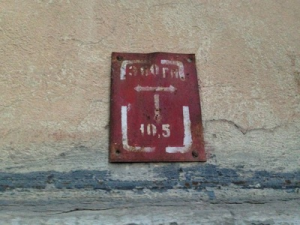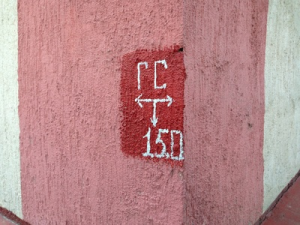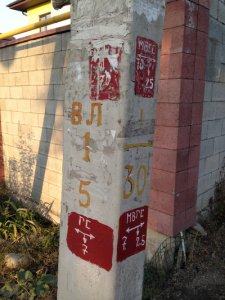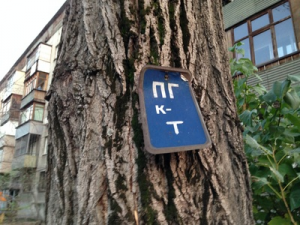 It wasn’t that long ago, late October, mid-day, mid-week. I was in a classroom on the third floor of our four-story university building, readying the projector for a PowerPoint I was going to present when my storytelling class began in about five minutes.
It wasn’t that long ago, late October, mid-day, mid-week. I was in a classroom on the third floor of our four-story university building, readying the projector for a PowerPoint I was going to present when my storytelling class began in about five minutes.
Above the din and swirl of students in the hallway, I heard what sounded like a bell and then an announcement. I took notice because even though I have been teaching in this university for 11 months, I have never heard the PA system being used. The bell sounded as if it were being rung inside a sock underwater. The announcement had the clarity of someone yelling jumbly sentences into the corner of a closed pizza box.
All I got were the words: fire drill.
For some context, I am in post-Soviet Central Asia. I’m in Bishkek, Kyrgyzstan, a tame and orderly city of about a million. I teach in an American university, which means that classes are taught in English, the professors have office hours, the students wear backpacks. There are familiarities here: cellphones and grocery stores, advertising and graffiti. People take buses and taxis. They wear skinny jeans and post selfies onto their Facebook accounts.
When I caught the words fire drill, I snapped to with starch and industry. I strode into the hall. There, it was business as usual.
 “Is this a fire drill?” I asked a group of students outside the classroom door. One looked up from the glow of his smartphone screen. “Yes,” he said and plopped into a hallway chair.
“Is this a fire drill?” I asked a group of students outside the classroom door. One looked up from the glow of his smartphone screen. “Yes,” he said and plopped into a hallway chair.
FIRE DRILL—the words became capital letters inside my head. The confirmation of the drill was all I needed to prompt a fugue state and release my inner former hall monitor. There are protocols and procedures for fire drills. There are rules and regulations. Let’s. Get. Going.
I took on the persona of a traffic cop. “OK people, let’s move,” I barked. “This is a fire drill. Everyone out of the building now. Quiet. Single file. Let’s get moving.” I waved my arms and clapped my hands. I made big circles and emphatic gestures. The students regarded me with blank faces and returned to their phones. No one quickened their step or quashed their conversation.
I ramped it up a notch, aware but unconcerned that I was the only person yelling commands. I didn’t care; I had moral righteousness on my side. I was the voice of public safety. “People! Let’s get going. This is a fire drill. Everyone form lines and move quickly out of the building. No talking. Keep moving.”
 Nobody seemed to be responding with the sense of urgency I was trained to attach to fire drills. Fire drills mean crisp organization, single file lines of obedience, the many working as one. This drill felt like stoned cats just up from naps thinking about maybe possibly going somewhere outside sometime.
Nobody seemed to be responding with the sense of urgency I was trained to attach to fire drills. Fire drills mean crisp organization, single file lines of obedience, the many working as one. This drill felt like stoned cats just up from naps thinking about maybe possibly going somewhere outside sometime.
Two dominant thoughts battled like gladiators in the arena of my conscious mind: How long would I be inhabited by this insufferable alter ego yelling orders and telling everyone what to do? And: This is a FIRE DRILL! What is wrong with these people?
Back at St. Francis of Assisi, where I went to elementary school, most of the kids made fun of fire drills. It was cool to think they were stupid, but I have memories of liking them, which sounds a lot like irrefutable proof that I have been a nerd for a very long time. I liked the theater of it all. Scary bells interrupted class and inserted drama into our otherwise pretty routine days. Lights flashed, books were slammed shut and we sprang into action, all of us performing the script. There was something soothing in the simple choreography of the drill, something thrilling in the possibility of danger. We lined up, put our hands on the shoulders of the kid in front of us and moved out to the parking lot. The nuns brandished stopwatches and conducted head counts. After the all clear, we moved back into the classroom, feeling a small sense of pride for being obedient, for performing well. At least I did.
 Outside the building at the university the fire drill had crumbled into low-key indifference. Actually it never coalesced into anything beyond low-key indifference. No lines. No quiet. No one in charge, really. It felt more like we were all gathered to wait for a concert to begin. Students milled and chatted. They texted and smoked. Some turned their faces toward the sun, bright on this crisp autumn day.
Outside the building at the university the fire drill had crumbled into low-key indifference. Actually it never coalesced into anything beyond low-key indifference. No lines. No quiet. No one in charge, really. It felt more like we were all gathered to wait for a concert to begin. Students milled and chatted. They texted and smoked. Some turned their faces toward the sun, bright on this crisp autumn day.
After a while, we began drifting back into the building. We made our way toward our classrooms and whatever would come next.

